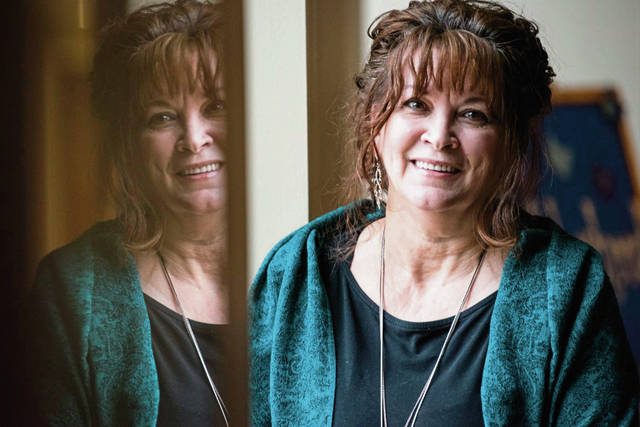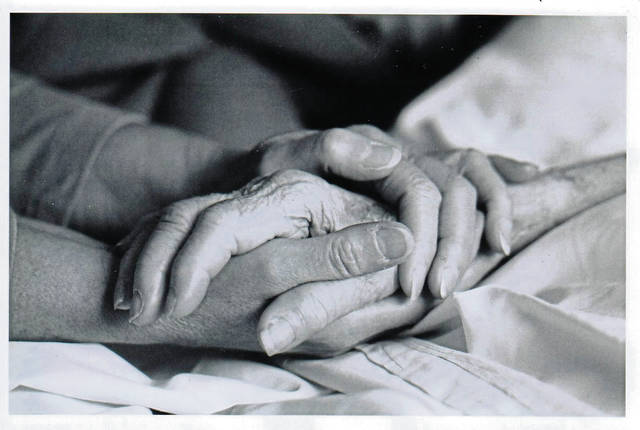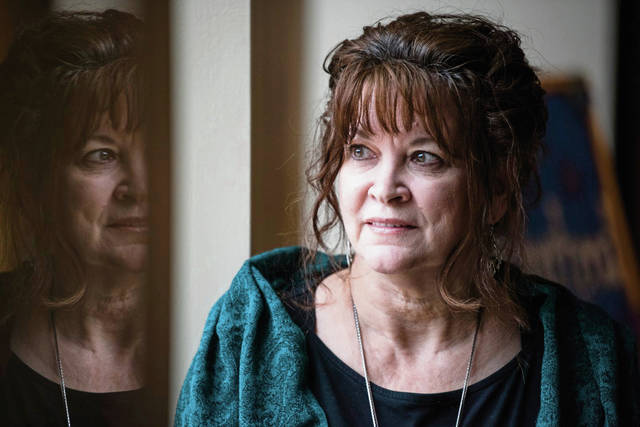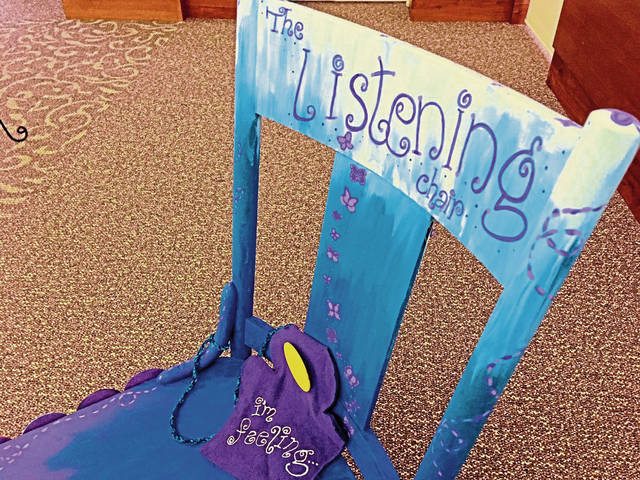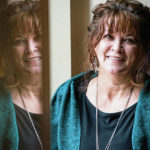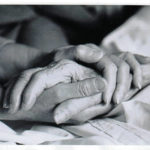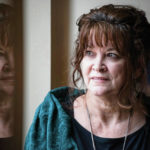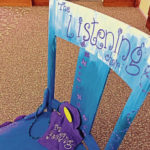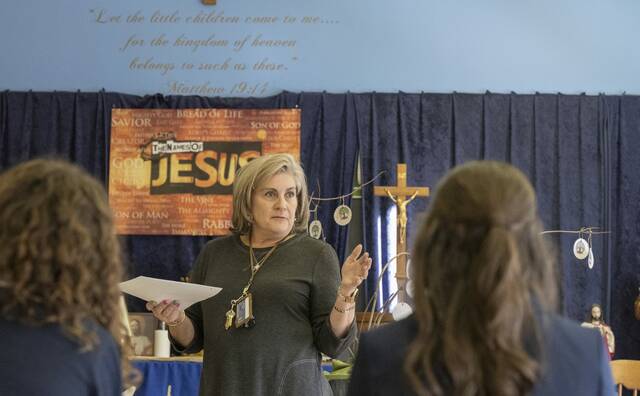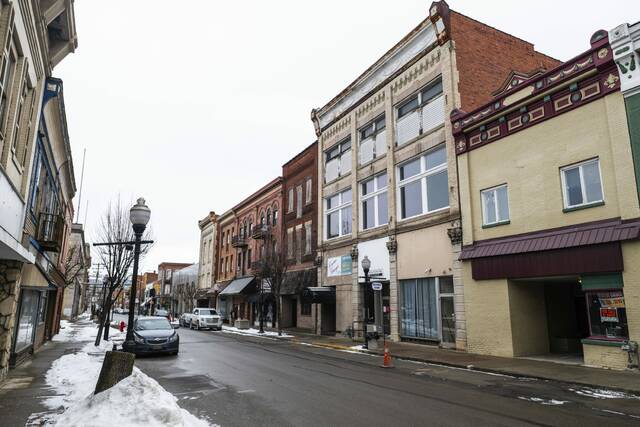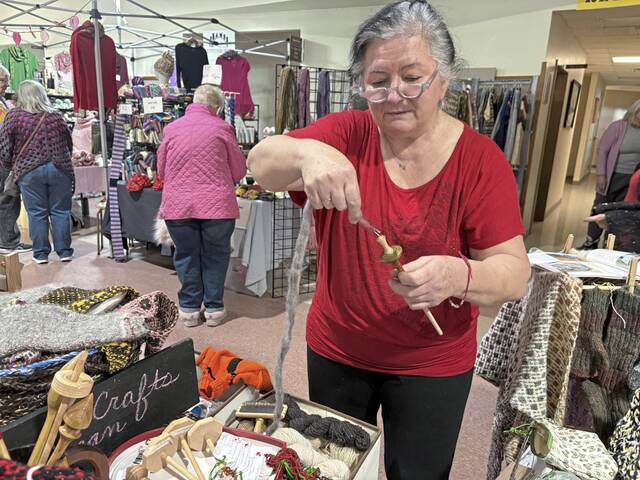Maureen Ceidro of Latrobe has dealt with death and grief in her job as Excela Home Health Care and Hospice’s bereavement coordinator — helping those at the end of a long life and helping youngsters trying to make sense of their life after the loss of a loved one.
“We all have our gifts. I’m just here to love people,” said Ceidro, 64, who has worked with the Excela Hospice program for 13 years.
Ceidro facilitates a program, Neighborhood Kids, designed to teach children 5 to 14, how to deal with grief and how to express their emotions.
Dealing with grief can be a struggle for adults and even more so for children, Ceidro said.
“Imagine a child who has lost someone they loved,” Ceidro said. “It is very upsetting. It is life-changing” for them.
A bereavement program for children ages 5 to 9 will be held beginning Feb. 24 for six Mondays at Excela Latrobe Hospital.
“We are building on the (Neighborhood Kids) program we started in September,” Ceidro said. The pilot program, which had about 20 participants, was for four weeks. That has been expanded to six weeks to give more time to work with the children.
“We want them to know that their feelings are embraced and understood,” Ceidro said. “We are always reassessing their needs.”
As children develop, their understanding of death itself grows, Ceidro said. But not all children know the words to use to describe their grief.
“We give them the opportunity to express themselves in art and music, to put their feelings out there,” Ceidro said.
Providing the art piece of the therapy within the program “can be the bridge between the child and their caretaker,” said Kristy Walter, Excela Health Hospice bereavement counselor and art therapist.
“Through various types of artwork, they can express how they are feeling,” Walter said.
While Ceidro works with the adults in the program, Walter said she works with the children through art therapy, “allowing the kids to express their feelings.”
The youngsters develop a “worry monster” — an object on which they can transfer their worries — and memorial jars. The jars hold a candle and a memory of the loved one, representing a space where they can grieve and talk to that person, Walter said.
Walter said her and Ceidro’s skills complement each other.
“I feel very blessed to work with her,” Walter said of Ceidro. “She knows how to connect with people. She’s a soft-natured person.”
They also use wooden “listening chairs” painted blue by Kristy Walter and art therapy interns from Seton Hill University in Greensburg. The chairs are kept close together with a board at the bottom of the legs.
“It gives children the opportunity to express their feelings. We can better listen to them. People don’t get enough of that,” Ceidro said.
The chairs have small, round removable wooden discs with various facial expressions painted on them — such as mad, sad and happy.
Ceidro worked with the Fred Rogers Center at Saint Vincent College.
“This is a reflection of who he (the late Fred Rogers) was,” Ceidro said. “He listened, and that was important.”
She created an educational brochure, “When Someone Your Child Loves Dies,” with the Rogers Scholars at the Fred Rogers Center. Jessica Black, a psychologist and consultant with the Rogers Center, provided input on the brochure.
The outline for the Neighborhood Kids program was developed, in part, through a collaboration with the Rogers Center, Seton Hill and Excela Health.
“We are all tending to their hearts,” Ceidro said.
Laying the groundwork
Ceidro had laid the groundwork for helping others since her days as a religious education major at what was Seton Hill College in Greensburg.
She had grown up in the Pittsburgh suburb of Crafton but graduated from Monessen High School after her family moved to the Mon Valley.
She considered becoming a religious education coordinator for a Catholic parish. In pursuit of that goal, she worked for a period at St. Aloysius Roman Catholic Church in Dunbar, Fayette County.
She became a hospital chaplain and was an intern at the former Westmoreland Regional Hospital in Greensburg in the 1980s. Ceidro worked as a pastoral care director at the former Jeannette District Memorial Hospital, which closed in 2011.
Ceidro, the mother of two adult daughters and one adult son, later earned a master’s degree in theology at Saint Vincent Seminary in Unity. At the time, Ceidro said she was told she was one of the first women to attend program at the once all-male seminary.
When she is not working, she has a passion for photography, which she has been pursuing for more than 20 years. A fan of the blues style of music, she had taken numerous photographs of musicians.
Her photographs are good enough to warrant two local exhibits. One of her favorite pictures is that of a female hospice patient whose hands are intertwined with her husband, on the date of their anniversary.
“He told her, I would marry her all over again,” Ciedro said.
Reaching adults
The bereavement component of Excela Hospice’s program also reaches out to adults who have lost a loved one through illness, accidents and opioids, Ceidro said.
“We talk about the sense of helplessness, how people feel in the wake of their loss,” Ceidro said.
Just like dealing with the children, it is important to listen to the adults as they maneuver through the grief process.
They often are dealing with depression from their loss, which can manifest itself in various ways, such as not wanting to cook for themselves, Ceidro said.
“We help them recognize their own self-worth,” Ceidro said.
Not all of the grief programs are held in a hospital setting. There are meetings in cooking classes, yoga classes, art classes and restaurants, Ceidro said.
“Not everyone is inclined to come in (to the hospital) and talk,” Ceidro said.
One social support group has met at the popular Bud Murphy’s Sports Bar and Restaurant in Connellsville.
”You really have bereavement groups reaching out to people where they are.”


